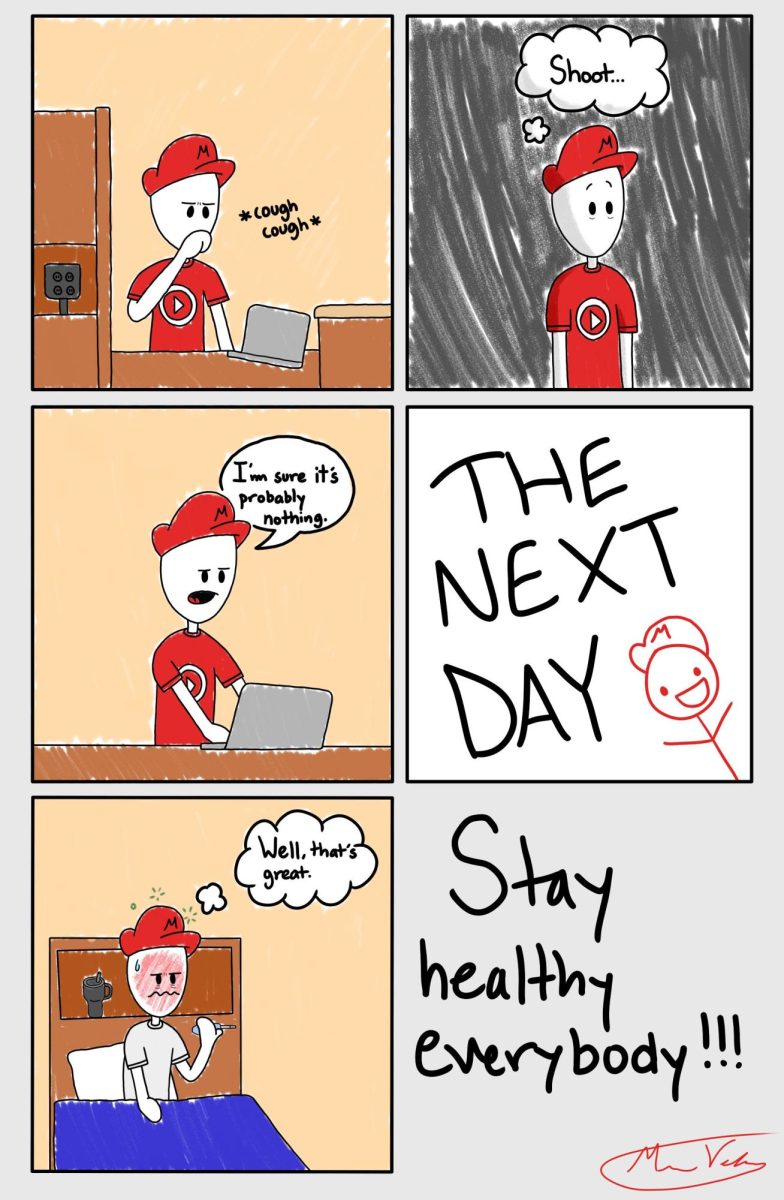I still remember the first time I made a friend burst into tears. I had casually asked how his parents were doing, but nothing about the answer I received was casual.
Tears streaming down his face and hands clutched at his sides, my friend explained that his parents were heading toward a messy divorce.
Over the next hour at my eighth grade after-school program, I listened to my friend struggle to hold back tears as he told me about the difficulties his parents’ marriage had faced for several years and the fights he’d witnessed.
All I could do was listen and commiserate while he shared his fears, concerns and worries. Even though I understood how it feels to have divorced parents, I was caught completely off guard by my friend’s outburst. He had appeared as jovial as always throughout the day, cracking jokes and telling stories as if nothing were wrong.
A lot of us wear a mask over our faces, a mask of illusory happiness. When someone asks us how we’re doing, we say, “I’m doing well,” without a second thought to whether or not that’s true. When people ask us what’s happening in our lives, we gloss over the negative to focus on the positive.
But for some reason we’re surprised to find out others do the same thing—they hide pain with hollow smiles.
I was caught off guard when my friend told me honestly about the tragedies happening in his life because most people I knew weren’t honest with me about the depressing events they faced each day. That’s a shame. When no one else talks, I find it difficult to share my own burdens, and I’m sure that’s true for others as well.
Sharing our concerns, struggles and sorrows with others isn’t a useless task. In fact, opening up often helps strengthen our bond with the friends we’re transparent with and even makes us feel better. Sometimes, knowing someone cares enough to listen can be a great encouragement.
For my middle school friend, talking about his problems really did help. After a long discussion punctuated by both of us crying, we dried our eyes together. My friend thanked me for listening and understanding and even for crying with him.
He said it had felt good to get those worries off his chest and share them with someone who cared. As we left the after-school program, we both realized that we had become even closer friends because of all we had been through.
If we want our friends to share their burdens, we have to actively work to create an atmosphere where they feel comfortable. It takes bravery to share those worries even in a welcoming environment; if the environment isn’t inviting, most people will stay silent when they need someone to talk to.
Treating that environment requires setting the example by being willing to discuss our own problems. We have to take off the mask, open up and tell those around us how we feel if we want them to feel comfortable with doing the same. If we want the environment to change, we need to take action and be the ones to make it happen.
We also have to be willing to listen in order to make people comfortable with sharing. People are drawn toward those who will respectfully hear them out, but nothing shuts someone up faster than knowing the person they’re talking with doesn’t care.
Finally, we have to recognize that we don’t really know what the people around us are going through. Just like we hide behind polite, inane answers when asked about our days, so do others. Your friend may not feel all right, even if they said they were “ok” when you casually asked them over coffee.
If we commit to intentionally listening to our friends, sharing our feelings and not assuming people are happy just because they smile, maybe we can keep our friends from shedding tears.
But even when tears roll down their faces, we can be there to cry with them.























































